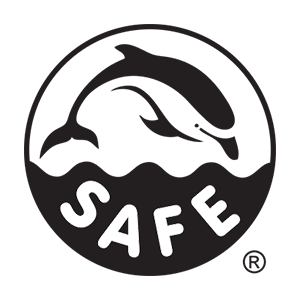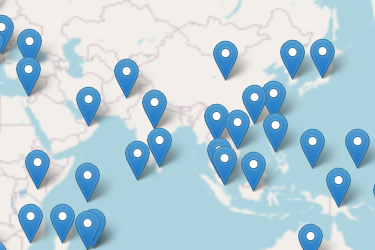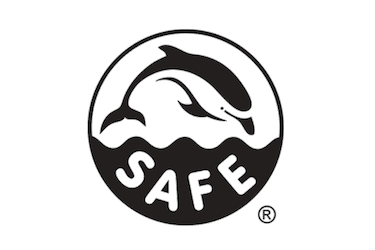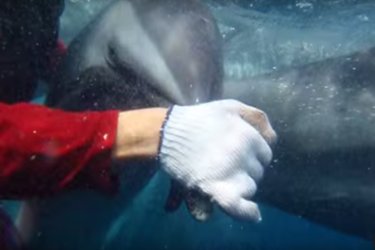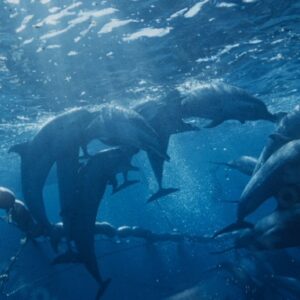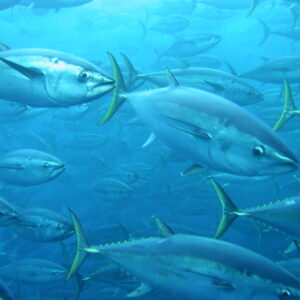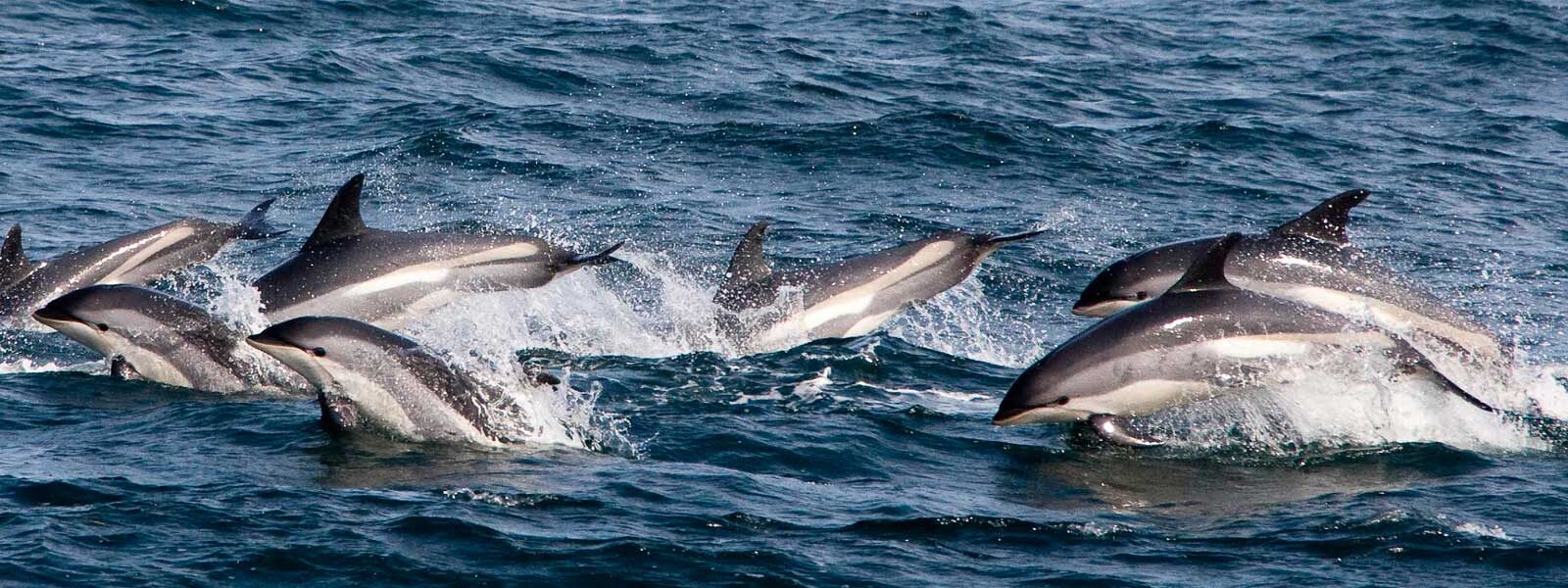
Dolphin Safe Fishing
The Problem
For decades, dolphins in the Eastern Tropical Pacific Ocean were intentionally chased and netted by tuna fishermen to catch the tuna that swim beneath dolphin schools. More than seven million dolphins were killed by the purse-seine tuna fleets, the largest killing of marine mammals in history. Numerous species of dolphins have been severely depleted, and without protection, they may never recover.
Our Action Campaign
In 1988, alongside the Marine Mammal Fund and undercover activist Samuel LaBudde, we worked to show the world the first video footage of dolphins being intentionally captured and drowned far out at sea in the nets of commercial tuna fishing vessels. Samuel's video provided shocking proof of the horrific impacts that the tuna purse-seining fishing industry was having on dolphin lives. In 1990, we led the way in pressing for the enactment of US federal legislation to prohibit the use of a Dolphin Safe tuna label unless the tuna is caught without any chasing, netting, and killing of dolphins. Today, more than 95 percent of the world’s canned tuna supply comes from vessels using Dolphin Safe fishing methods, and Dolphin Safe tuna is now the predominant canned tuna in markets throughout the world. Our International Dolphin Safe Monitoring Program, with monitors covering more than 800 companies in 76 countries around the world, works to ensure that tuna caught by the horrendous chasing and netting of dolphins does not enter the supply chain for Dolphin Safe canned tuna around the world. Dolphin deaths in tuna nets have declined by more than 90 percent since 1990, but more still needs to be done.
Current Challenges
Mexican, Venezuelan, and Colombian tuna fleets continue to chase, net, and drown thousands of dolphins annually. Mexico has fought to overturn the Dolphin Safe tuna label, going to the World Trade Organization and the U.S. Congress to press for changes US laws so they can falsely label their tuna — stained by the blood of dolphins — as Dolphin Safe. We have successfully fought off those assaults. Unfortunately, the Marine Stewardship Council made a a faulty and scientifically indefensible determination to allow Mexican dolphin-deadly tuna fishery to use a “sustainable fishery" label even though this tuna is caught at the expense of dolphin lives. The International Marine Mammal Project at Earth Island Institute continues to work to address the threats to dolphins, including ending the killing of dolphins for shark bait, the deadly use of gill-nets, and the entanglement of dolphins and whales in discarded plastic pollution.
Campaign Details
Questions about Dolphin Safe
For more information about the Dolphin Safe tuna program please contact us at DolphinSafe@earthisland.org
Get in touchLatest Dolphin Safe Fishing News
- Staff Spotlight: Meet Trixie Concepcion, the Director of the Asia-Pacific Dolphin Safe Monitoring Program
- The Tuna Dolphin Tragedy
- IMMP Supports CCTV Onboard Tuna Vessels to Ensure Dolphin Safe
-
Q&A: Dolphin Safe Tuna
By Dave Phillips and Mark Palmer
- International Marine Mammal Project Statement on Seaspiracy Film
- Fisheries Observers Are in Danger By Mark J. Palmer
- IMMP’s Plans and Hopes for 2021 By Mark J. Palmer, Associate Director
- More news for Dolphin Safe Fishing >
